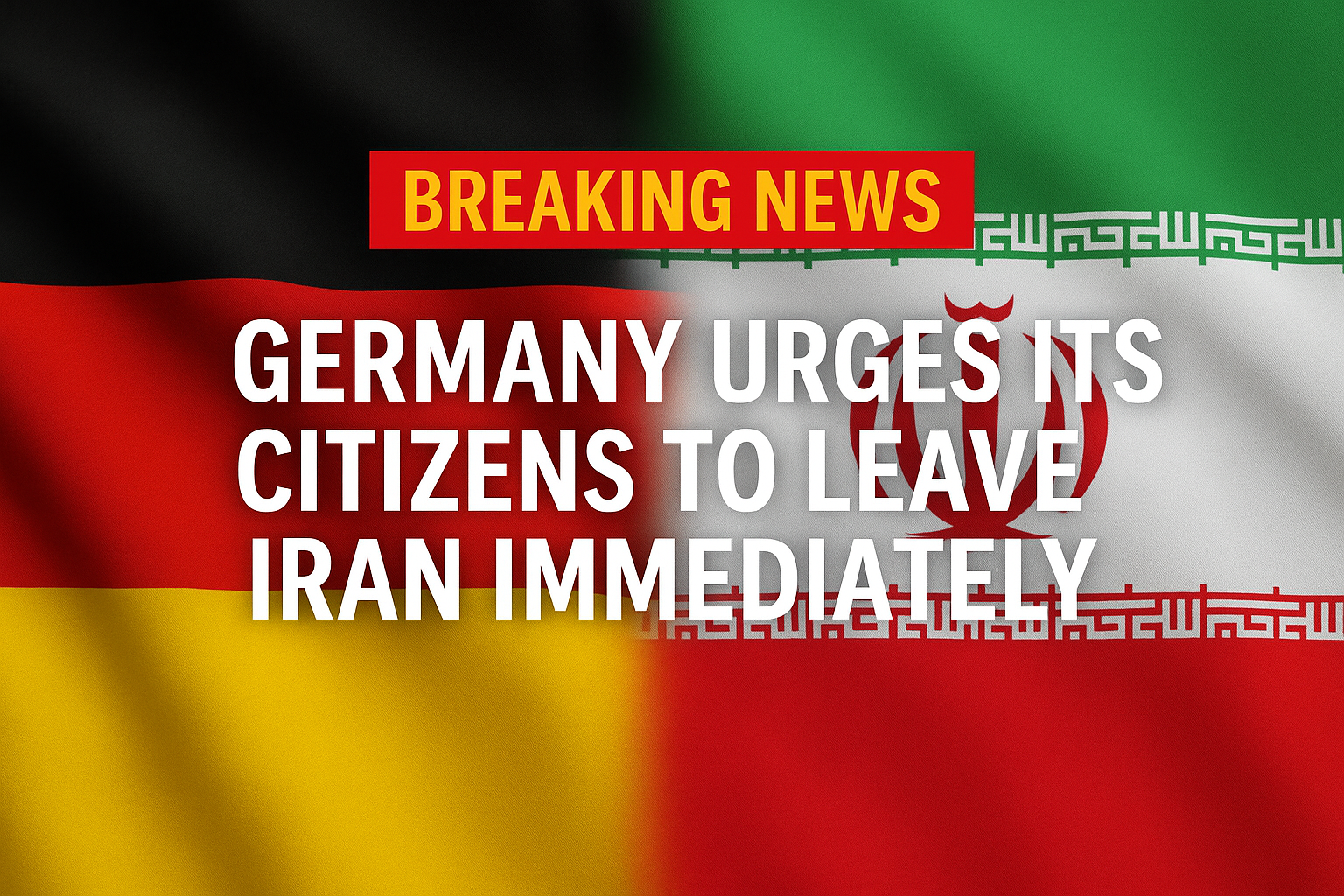Germany Urges Its Citizens to Leave Iran Immediately Amid Rising Regional Tensions
By Tredu.com • 8/29/2025
Tredu

Berlin Issues Urgent Travel Advisory
Germany urged its citizens to leave Iran immediately on Friday, escalating concern that rising regional tensions could spiral into open conflict. The Foreign Ministry said the situation had grown increasingly unpredictable following recent clashes in the Gulf and heightened military activity in neighboring countries.
The advisory underscores Berlin’s assessment that conditions in Iran are no longer safe for foreign nationals, and comes just days after several European embassies in Tehran reduced staff levels.
What Prompted the Warning?
Officials in Berlin pointed to a series of fast-moving developments:
- Increased U.S. naval deployments in the Gulf region.
- Reports of Iranian military mobilizations near strategic energy routes.
- Intensifying disputes over Iran’s nuclear program and sanctions enforcement.
Taken together, these risks compelled the government to act swiftly, advising all German nationals to depart Iran while commercial flight routes remain open.
Energy Market Implications
The advisory immediately caught the attention of global energy markets. Iran is a key oil producer, and any disruption to its exports or transit routes like the Strait of Hormuz could send crude prices soaring. Traders are already factoring in a geopolitical risk premium, with Brent crude edging higher in early European trade.
Gold, another safe-haven asset, also ticked up as investors sought protection from the growing uncertainty.
Regional and International Reactions
Germany is not the first Western nation to warn its citizens. The United States, the United Kingdom, and France have all issued similar advisories in recent weeks, reflecting a broader Western concern that tensions with Tehran could boil over.
Iran’s Foreign Ministry condemned Berlin’s warning, calling it “politically motivated fearmongering” and insisting that foreigners in Iran remain safe. However, analysts note that the combination of diplomatic withdrawals and security warnings points to a deteriorating outlook.
Risks for European Diplomacy
The decision also highlights the challenges facing European diplomacy. Germany has been a key participant in past negotiations over Iran’s nuclear program, often pushing for dialogue and restraint. The withdrawal of its citizens signals a recognition that conditions on the ground may no longer permit meaningful engagement.
Diplomatic analysts warn that the move could further isolate Tehran, narrowing channels for negotiation just as regional tensions are reaching a boiling point.
What It Means for Global Markets
The advisory is not just about personal safety—it’s a signal to investors and policymakers. Heightened risk in Iran reverberates across asset classes:
- Energy Markets: Oil supply fears dominate, particularly with tanker traffic at risk.
- Equities: European shares with exposure to the Middle East fell modestly in early trading.
- Currencies: The dollar and yen strengthened, reflecting safe-haven flows.
Market strategists warn that if tensions escalate further, volatility could spread beyond commodities into broader financial markets.
The Road Ahead
For German citizens in Iran, the message is clear: leave now. For policymakers and markets, the advisory underscores how fragile the regional balance has become. With U.S. forces deploying across the Middle East and Iran doubling down on defiance, the risk of escalation is rising daily.
As Berlin put it bluntly in its statement: “The security situation can deteriorate at any time. German nationals should leave Iran immediately.”
The Bottom Line
Germany’s urgent call for its citizens to leave Iran immediately marks a turning point in Europe’s stance toward Tehran, reflecting growing alarm over regional instability and potential conflict. For investors, the warning is another reminder that geopolitical shocks in the Middle East carry global consequences—especially for energy and financial markets.

How to Trade Like a Pro
Unlock the secrets of professional trading with our comprehensive guide. Discover proven strategies, risk management techniques, and market insights that will help you navigate the financial markets confidently and successfully.


